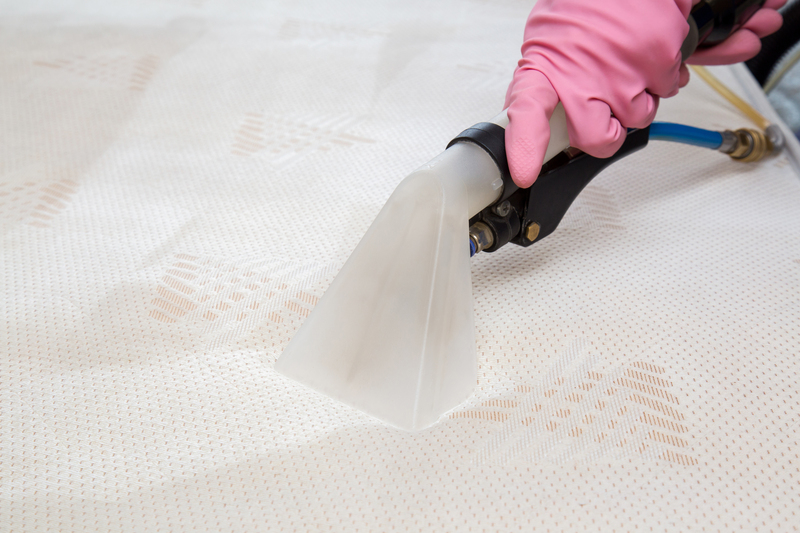Effective Ways to Eliminate Damp Smell from Your Home
Posted on 27/08/2025
Effective Ways to Eliminate Damp Smell from Your Home
If you're dealing with a persistent musty odor, you're not alone. Damp smells in homes are a common problem, particularly in humid climates or older properties. Not only are these odors unpleasant, but they can also be indicators of more serious issues like mold, mildew, or excess moisture. This comprehensive guide highlights the most effective methods to get rid of damp smells in your house, backed by practical advice and step-by-step solutions.
Understanding the Causes of Damp Odors in Your Home
Before diving into how to eliminate musty odors, it's crucial to understand what causes that damp smell. This knowledge helps tackle the problem at its roots and prevents future recurrence.
Common Sources of Musty, Damp Odors
- Mold and Mildew Growth: Spores thrive in places with excess moisture, giving off a characteristic musty, dank scent.
- Poor Ventilation: Insufficient air circulation trap moisture, enhancing stagnant smells.
- Water Leaks: Leaky pipes, roofs, or windows can saturate walls and floors, leading to odor-causing bacteria and fungi.
- Wet Clothing or Carpets: Items left damp harbor bacteria.
- Basements and Cellars: These are often poorly ventilated and exposed to higher humidity levels.
Why Eliminating Damp Smells Matters
- Health Concerns: Prolonged exposure to mold and mildew can cause allergies, respiratory issues, and other health problems.
- Property Damage: Persistent moisture can degrade building materials, weaken structures, and destroy belongings.
- Home Value: Unpleasant odors can reduce the market value of your property.

How to Get Rid of Damp Smell in Your Home: Step-by-Step Solutions
Addressing musty odors in your home involves eliminating the odor and its underlying cause. Follow these proven, effective strategies to reclaim a fresh atmosphere indoors.
Step 1: Identify the Source of the Dampness
- Inspect Common Problem Areas: Focus on basements, bathrooms, kitchens, attics, and closets.
- Look for Water Stains, Peeling Paint, or Mold: These indicate hidden leaks or condensation problems.
- Check Carpets and Rugs: Lift them to inspect padding and floors underneath.
- Smell Test: Trace the intensity of the odor to pinpoint its origin.
Pro Tip: Use a humidity meter (hygrometer) to check for excess moisture in different rooms.
Step 2: Increase Ventilation
- Open windows and doors to promote cross-ventilation.
- Use exhaust fans in kitchens, bathrooms, and laundry areas.
- Install trickle vents or air bricks if you have single-glazed windows or older structures.
- Run ceiling fans to keep air circulating.
Step 3: Use a Dehumidifier
- Why: Reducing airborne moisture inhibits the growth of mold and mildew that generate damp odors.
- How: Place a dehumidifier in the most affected rooms. Empty the tank regularly and clean the filter for maximum efficiency.
- Alternative: Silica gel bags or moisture absorber packets can be used in smaller spaces like closets and drawers.
Step 4: Clean and Dry Affected Surfaces Thoroughly
- Walls and Ceilings: Scrub with a mixture of white vinegar and water or a commercial mold remover.
- Floors and Carpets: Use a carpet cleaner on removable rugs and wash with detergent. Consider steam cleaning for deep odors.
- Upholstery and Curtains: Launder machine-washable items. For sofas or mattresses, sprinkle baking soda, let sit, and vacuum up after a few hours.
- Tiles and Grout: Use a brush with baking soda paste or diluted bleach for stubborn mildew.
Note: Always wear gloves and ensure good ventilation when using chemical cleaners to remove musty smells.
Step 5: Locate and Repair Water Leaks
- Check under sinks, behind appliances, around windows, and in roof spaces for signs of leaks.
- Fix any plumbing or roof issues immediately to prevent further moisture entry.
- Seal window gaps and cracked walls.
Step 6: Eliminate Lingering Odors Naturally
- Baking Soda: Scatter on carpets and in musty-smelling corners. Leave for a few hours before vacuuming.
- White Vinegar: Place bowls of vinegar in rooms overnight. It absorbs unpleasant smells and neutralizes them.
- Activated Charcoal: Absorbs odors and excess humidity, ideal for closets or under sinks.
- Coffee Grounds: Place in open containers to neutralize musty aromas and refresh the air.
- Essential Oils: Diffuse oils like tea tree, eucalyptus, or lavender for a fresh scent (but only after addressing the cause of humidity).
Step 7: Wash or Dispose of Unrecoverable Items
- Clothes & Soft Furnishings: Wash all washable items in hot water with vinegar added to the rinse cycle.
- Severely Moldy Items: Discard anything beyond repair to prevent ongoing spores in the home.
- Old Newspapers, Cardboard, or Paper: These can become breeding grounds for mold and should be thrown out.
Additional Tips for Preventing Damp Smells in the Future
Maintain Consistent Ventilation
- Open windows regularly, even during winter, for short bursts to allow fresh air in.
- Use extractor fans when cooking or showering.
- Keep internal doors open to promote air movement.
Control Indoor Humidity
- Set your dehumidifier to keep humidity levels between 30% and 50%.
- Avoid drying clothes indoors, or ensure good ventilation if you must.
- Cover pots when cooking to reduce steam in the air.
Regular Cleaning and Maintenance
- Routinely wipe down surfaces prone to condensation, especially windowsills and bathroom tiles.
- Deep clean carpets and upholstery at least twice a year.
- Check basements, attics, and storage areas for signs of water ingress or mold.
Install Moisture Barriers Where Needed
- In basements, use waterproof paints or damp-proof membranes on walls and floors.
- Add insulation to roofs and walls to reduce condensation.
- Consider a sump pump or drainage systems in chronically damp cellars.
Consider Home Improvements
- Upgrade to double-glazed or appropriately sealed windows to prevent condensation buildup.
- Replace old roofing or fix damaged flashing to address persistent leaks.
- Seal foundation cracks and exterior gaps to block moisture entry.

Common Questions About Removing Damp Smell from Home
What are the best products to remove a musty damp smell?
Commonly recommended products include:
- Commercial dehumidifiers
- Activated charcoal odor absorbers
- White vinegar and baking soda
- Mildew-specific cleaners (read labels for safe and proper use)
- Essential oil diffusers (post-cleanup)
Can I DIY these solutions, or should I call a professional?
Most methods to get rid of a damp odor in your house can be safely executed by homeowners. However, if the odor persists after your efforts, the source might be structural or extensive.
- Call a professional if:
- There is visible, widespread mold, large water leaks, or chronic humidity above 60%.
- The smell is accompanied by breathing difficulties or allergies among household members.
- You suspect your foundation, roof, or plumbing is compromised.
Is it possible to permanently get rid of damp smell?
Yes, by addressing the source of the moisture--not merely masking it--along with drying, dehumidifying, and thorough cleaning, you can permanently eliminate damp odors from your living space.
How long does it take to completely remove damp smell?
This depends on the cause, extent, and your efforts. Some musty odors can be cleared within hours with good ventilation and cleaning, while more serious cases might require a few days or even weeks, especially if structural repairs or drying are needed.
Conclusion: Enjoy a Fresher, Healthier Living Environment
A damp, musty smell in your home is more than an inconvenience--it's a warning sign of excess moisture or hidden issues. By identifying the root cause, using the most effective ways to remove damp smell from your home, and taking steps to prevent recurrence, you can protect your health, property value, and peace of mind.
Remember: Don't just mask odors. Tackle the underlying causes, dry out affected spaces, and maintain good ventilation and humidity control for a home that always smells fresh and inviting.
If you're struggling with persistent damp odors despite your best efforts, don't hesitate to seek professional help. Your comfort, health, and home are worth it!


